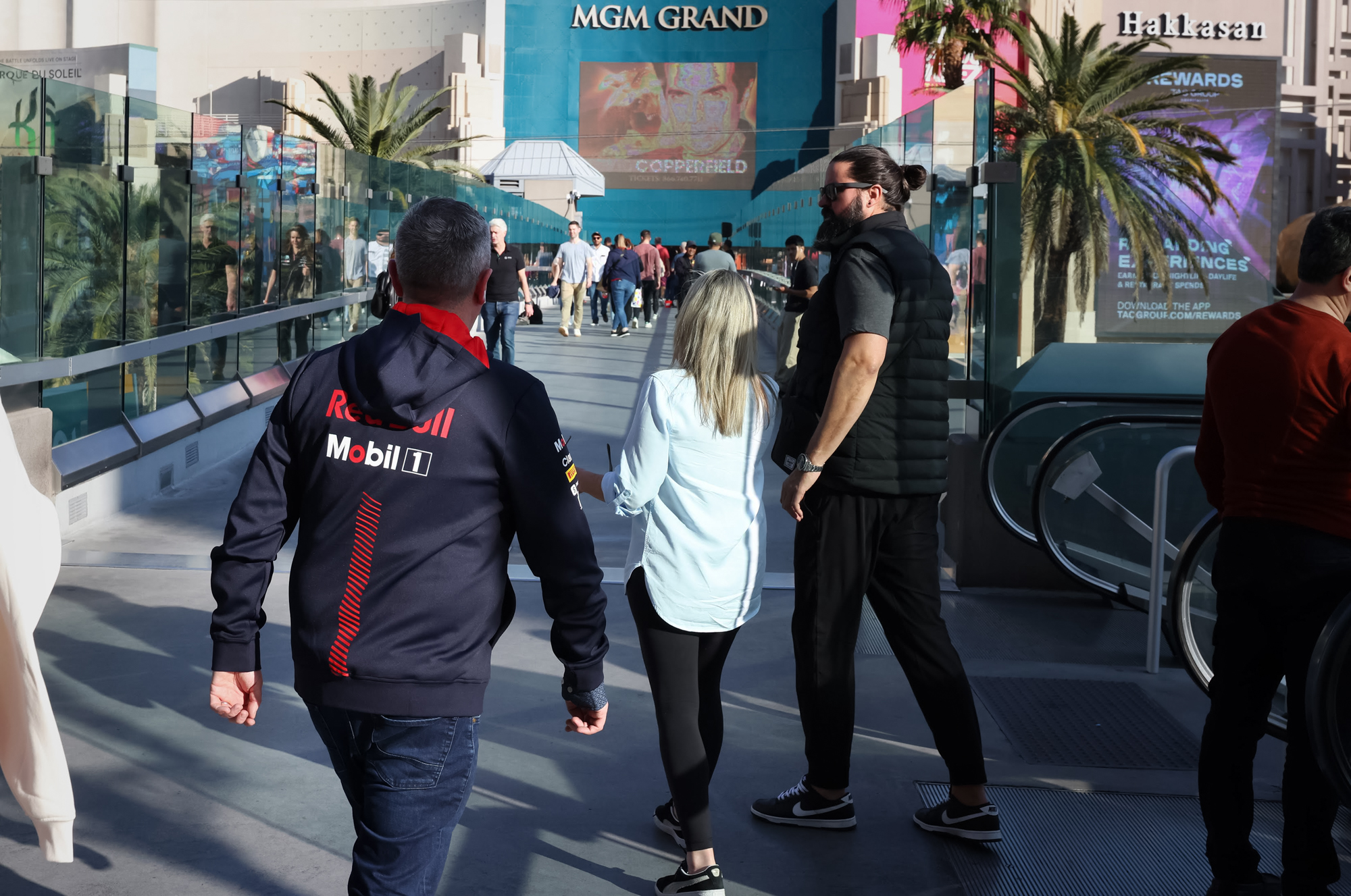People on the Las Vegas Strip will no longer be allowed to stop on pedestrian bridges aside from “incidental and fleeting viewing” after Clark County commissioners passed an ordinance on the matter Tuesday morning.
The ordinance, which supporters say will help with crime and pedestrian safety but opponents say criminalizes harmless activities, prohibits stopping, standing or congregating on the pedestrian bridges and up to 20 feet where the bridges connect to street-level sidewalks.
Violators could face a misdemeanor charge and, if found guilty, up to six months in jail or a $1,000 fine. Signage of the new law will be posted on and around the bridges, officials said.
William Sousa, a UNLV criminal justice professor and director for the university’s Center for Crime and Justice Policy, conducted a report for the commissioners and found that from 2018 through 2022, calls for disorderly conduct on the Strip were “disproportionately concentrated” on the pedestrian bridges and accounted for 11 percent of calls for disorderly offenses.
Street performers are able to continue their business on the sidewalk at street level or as long as they are moving on the bridge, officials said.
Andrew Walsh, the undersheriff with the Las Vegas Metropolitan Police Department, said that when the pedestrian bridges get congested, they present challenges for the officers, who can’t see what is happening.
“It is our belief that this ordinance, where pedestrians are mandated to keep moving, will greatly diminish the crime and disorder that occurs on the bridges and will improve public safety,” Walsh said at Tuesday’s meeting. “For some time, we have been concerned about crowd crush with the ever-growing number of tourists and large events that occur on Las Vegas Boulevard … And the old saying, ‘Where it’s predictable, it’s preventable,’ is staring us right in the face.”
Walsh said officers will inform pedestrians who stop on the bridge about the new law and ask them to keep walking. In the case that someone refuses to obey, the officers can issue a citation or make an arrest.
Eve Hanan, a UNLV law professor and director of the university’s Misdemeanor Clinic, which represents people charged with misdemeanors who don’t qualify for a public defender, said the policy criminalizes pedestrians and the issue is more so of crowd control and urban planning.
“If someone says, ‘Excuse me, could you please stop and give me directions? Excuse me, could you please take our picture as we stand here with a view in the background?’ These actions would be criminalized under this law,” Hanan said, adding that officers’ discretion may lead to “selective prosecution. It’s impossible for an ordinary person to know when they’re in compliance with the law.”

